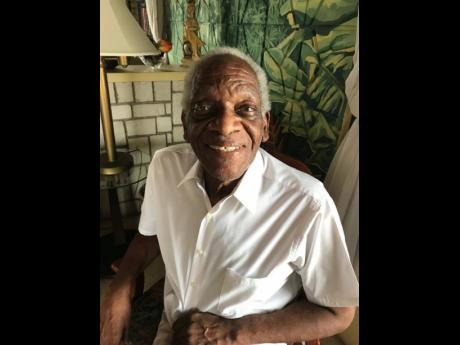COVID harks back to Spanish Flu
“Spanish Influenza is still raging through this town. The hospital is very much over-crowded,” read an excerpt from an October 18 Gleaner newspaper.
The year was 1918 and Amos Foster was 25 years old, and on the cusp of beginning his medical degree at Howard University in Washington, DC.
It was also the year the Spanish Flu started ravaging the world, with the first recorded cases in the United States, in the final year of World War I.
Unlike the Spanish Flu, however, which mostly affected adults in the 20-40 age groups, the current COVID-19 pandemic is a major threat to people older than 60 and those with underlying medical conditions.
The Spanish Flu mirrors much of what is occurring globally today, with thousands being infected and a percentage of them succumbing to the virus.
Foster’s son, William, who was born when he was 47, is known as Jamaica’s Good Samaritan of cardiology, having helped more than 800 patients to access free heart surgery overseas.
In a recent interview with The Gleaner, Dr William Foster recounted how his father’s experience with the flu, which spanned two years, influenced daily living when he returned to Jamaica in 1927.
“Back in those days, an office visit costs about 10 shillings, so it wasn’t many bills, but he would always rub them (the money) down with alcohol-laced cotton. He was not only cleaning it for himself, but preparing it for the next person to whom it would be given,” Foster recalled.
His father practised medicine locally from 1928 to 1982 in both private practice and as a district medical officer. He died in 1984.
Foster remembered quite vividly how he and his brothers’ heads were doused with rubbing alcohol when they returned from the barber and were sent to shower immediately after.
In Jamaica, there was a serious outbreak of the flu in Port Antonio, Portland, and in Montego Bay, St James.
It then spread to Spanish Town, Linstead and Savanna-la-Mar in the parishes of St Catherine and Westmoreland, respectively.
“Spanish Influenza is spreading. There are six cases here, one at Bethel Town. The sufferers are isolated in a building at the outskirts of the town secured by the local board. The central board has asked for quarantine against Montego Bay, owing to its close proximity,” read a telegraph from a Savanna-la-Mar correspondent.
A United Fruit Company building in Port Antonio was retrofitted into a temporary hospital, and 60 beds arrived from Kingston by train to equip the building.
The flu was described as a “dire malady” and in Port Antonio, “principally of a choleric form”.
Jamaica suffered a cholera outbreak in the early 1850s.
Schools were closed in the parish as the majority of students were ill, and goods destined for the port had to be sent to Montego Bay as no labour was available.
At the time, Medical Officer of Health for Kingston L. Oliver Crosswell advised that Jamaicans take a small dose of quinine daily and wash out their nostrils with a common solution of salt and water, or a weak solution of Listerine and water.
Crosswell also noted that the solutions could be used as a gargle – all preventative measures against the spread of the flu.
Mandatory Handwashing
At home, mealtime for the Fosters required mandatory handwashing before gracing the table; and there was an additional step.
“One of the serving bowls was converted into a scalding-water container and dad would put in the spoons and the knives and the forks and scald them with hot water,” Foster told T he Gleaner.
After they simmered long enough, he used the utensils to eat. Chinaware was also sterilised with heat from the stove before meals were served.
Foster recalled that his father would never use a straw because they were packaged in boxes, not individually as is customary now.
The elder Foster was a stickler for hygiene, and so the regime also trickled down to bath time.
“If you’re going to use a washrag to clean your body, it means that the rag won’t be clean as it was when you started. He used his hands instead,” said the younger Foster.
He also considered clothing as fomites, likely to carry infection.
“His street clothes remained far from his bed. Underwear, or most commonly pajamas, took over,” he recalled.
The Spanish Flu, which ravaged the world more than a century ago, killed an estimated 50 million people worldwide.
The lessons Foster learnt have remained with him, and he is doing his part to reduce the risk of contracting the novel coronavirus.
He is urging Jamaicans to be cautious about how they handle items before they are passed on to others, and about how they treat items before they are placed in the mouth.
“I have kept my nose inside mi yard! I am home with my wife, and I have seen more of her in the last few weeks than I have seen in the previous 10,” the 79-year-old said with a chuckle.

